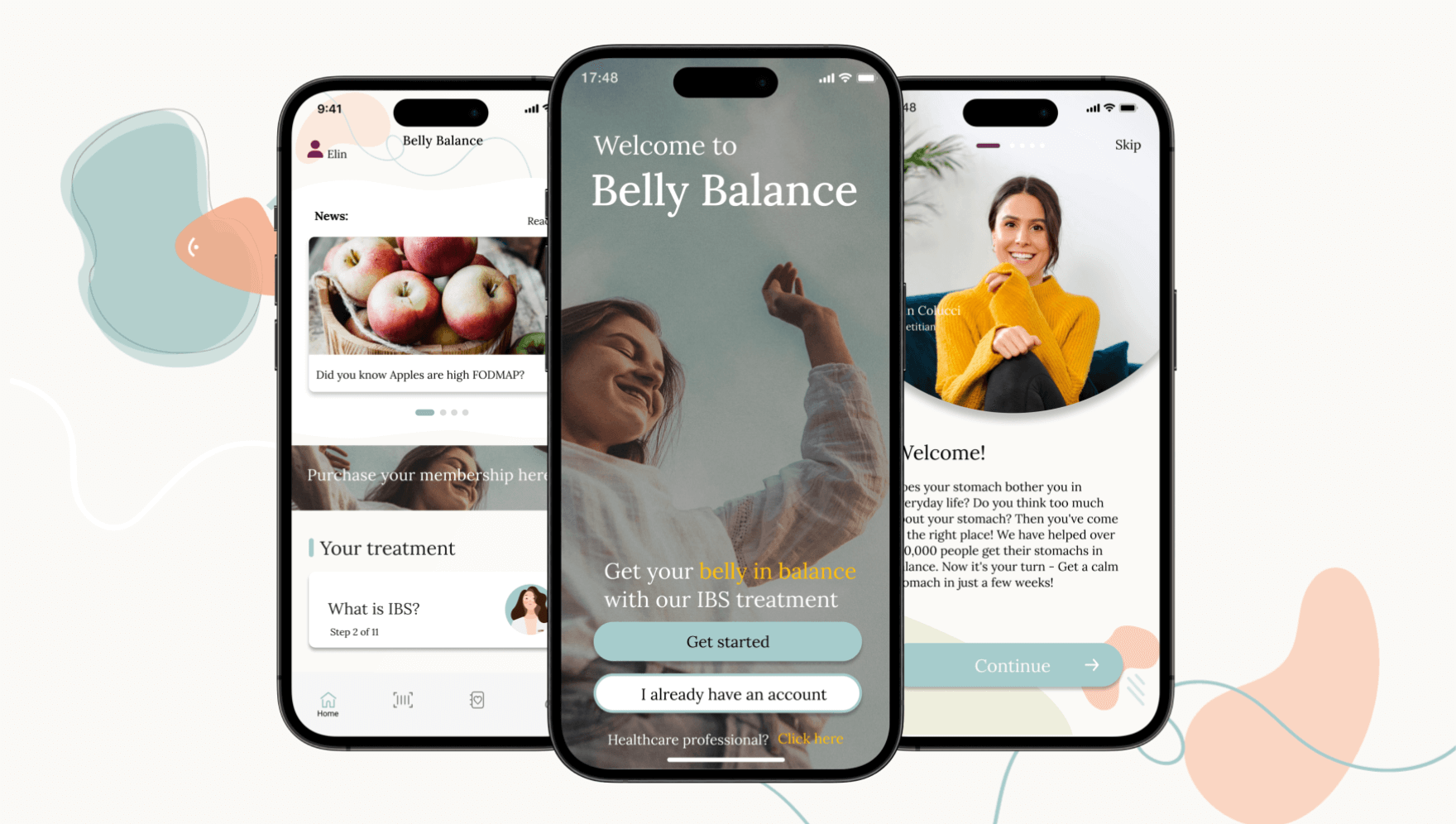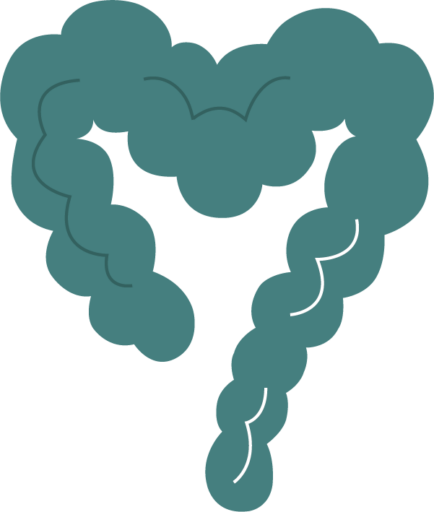
FODMAP in the long term
Studies consistently show that reducing FODMAPs has a positive effect for those with IBS. However, an unintended consequence of following the dietary treatment is its impact on gut flora. Research has indicated that the number of beneficial gut bacteria decreases, especially in the early stages of the diet when restrictions are greatest. Therefore, it is extremely important to undergo the entire treatment with a dietitian who understands the process and how to manage FODMAPs in the long term.
Our gut flora, or microbiota as it is technically known, is gaining increasing attention regarding the onset of diseases and our overall health. The fermentable carbohydrates included in the concept of FODMAP are prebiotic, meaning they serve as food for certain bacteria in our intestines. Reducing the amount of FODMAPs thus affects gut flora, which could potentially lead to negative health effects. Despite this, the FODMAP dietary treatment provides clearly proven symptom relief for as many as 75% of people with IBS. The bacteria that decrease in number, particularly bifidobacteria, are fundamentally beneficial for our intestines. This creates an interesting paradox; while the amount of these good bacteria decreases, symptoms are simultaneously alleviated.
Reintroduce for the sake of the bacteria
Studies conducted on the long-term effects of the FODMAP diet indicate that the gut flora changes. However, we currently know too little about the significance of this change in the long term. This is one of the reasons why it is important to maintain as varied a diet as possible, making the reintroduction process incredibly important to do correctly. By understanding what triggers reactions, it is possible to gradually introduce small amounts of FODMAPs, thereby providing gut bacteria with better conditions while keeping symptoms under control.
Steps to Manage FODMAP in the Long Term
What can you do to reduce the impact on the gut flora? Here are three safe tips:
Reintroduce – By adding items like canned lentils, sourdough bread, and chickpeas, you provide essential nutrients and prebiotics to the gut bacteria.
Another good measure is to take a probiotic containing lactobacilli and bifidobacteria, the very bacteria that decrease in number. We typically recommend Alflorex, Innate Flora 20-14 Ultra Strength, Terra Flora, or ProBelly as good options to include. To differentiate between the effects of diet and supplements, we usually suggest starting probiotics a couple of weeks into the dietary treatment. However, some may want to start right away, and that usually works well, especially if you suspect that an imbalance in the gut flora has contributed to the IBS symptoms. It’s also advisable to test a product for at least 4, preferably 8 weeks, before evaluating its effectiveness.
Reduce stress. Gut bacteria are greatly affected by our lifestyle, which also impacts the entire digestive process. Therefore, it’s beneficial to practice breathing exercises, meditation, or yoga regularly.
And what about all the products with probiotics, prebiotics, and synbiotics? They can be beneficial, provided they contain the right strains and as many as possible in the same product. Inulin and FOS are often added as prebiotics in supplements, and these can be highly symptomatic for individuals with IBS. Once the gut has regained balance, tolerance for these can increase.
Take control of your IBS today!
Ready to reclaim your life from IBS? Our app provides the tools and guidance you need to manage IBS effectively.
Download the AppSofia Antonsson
Reg. Dietitian, Belly Balance
Read more about

IBS - What is it?
Bloated , constipated or having a gassy stomach? IBS or Irritable Bowel Syndrome is a functional gastrointestinal disorder, meaning no physical issues can be found in the stomach or intestines; they just don’t function quite as they should.

How the app works
Download the app and become part of our community. We assist you in achieving a calm and happy stomach through treatment and tools available directly in the app.

About FODMAP
By learning which foods upset your stomach, you can make conscious choices and get quick symptom relief. With the low FODMAP diet, you receive structured assistance in understanding which foods your body tolerates better than others. No more guessing and pondering – you get the answer straight away!

